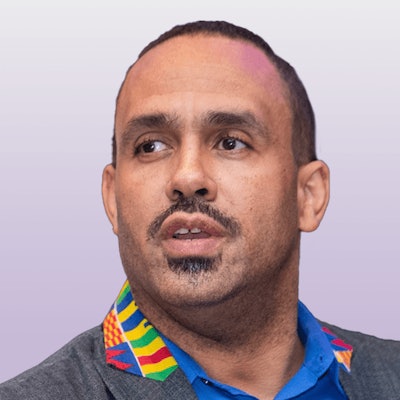A new report revealed that it could take Black citizens over 500 years to achieve economic equality in the United States. Sixty years after Dr. Martin Luther King, Jr.'s famous "I Have a Dream" speech at the March on Washington for Jobs and Freedom, experts have provided a realistic look at the slow turn of progress for equality.
The report "STILL A DREAM: Over 500 Years to Black Economic Equality" highlights current disparities that block the advancement of Black Americans. Dedrick Asante-Muhammad, co-author and chief of race, wealth, and community for the National Community Reinvestment Coalition, said the purpose of highlighting the 500 years in the report is because most people don't recognize how poorly the country is doing in terms of addressing Black economic inequality, whether it was during King's time or the present day.
"Dr. King would talk about African Americans in 1963 being in an island of poverty in the midst of an ocean of prosperity," said Asan Dedrick Asante-Muhammad is the chief of race, wealth, and community for the National Community Reinvestment Coalition.
Dedrick Asante-Muhammad is the chief of race, wealth, and community for the National Community Reinvestment Coalition.
Among the key findings from the report, African Americans make 62 cents to the dollar of white family income in 2021, and at the current rate, it would take 513 years to reach income parity. Additionally, the median household income for African Americans has grown just 0.36% since the turn of the century, and it is still lower today than the white median family income in 1963. The Black-white homeownership divide remains unbridged after more than 60 years.
Omar Ocampo, co-author, and researcher at the Program on Inequality and the Common Good at the Institute for Policy Studies, said he was shocked by the lack of progression on home ownership that the report found.
"The majority of African Americans are renters," said Ocampo. "And I think that plays a huge part in why there are disparities in wealth. In order to address these disparities, we need to have programs that build the assets of African Americans, which includes home ownership."
Ocampo said that homeownership is one of the best ways to build generational wealth and close the economic gap for Black people. Yet, home ownership among Black Americans includes a long history of exclusionary policies, including policies that directly targeted Black people, such as zoning ordinances prohibiting white men from selling property to Black people in already majority-white neighborhoods and redlining, a discriminatory practice of withholding services from someone because they live in an area deemed to be poor.
Though King's iconic "I Have a Dream" speech is frequently quoted and taught at schools, Asante-Muhammad said that people often focus on the ending instead of trying to understand the entire address. King called for economic justice in a movement that the country still has not embraced today, he added.
Included in the report is progress that has been made since the 1960s. Black Americans, in 1963, had a poverty rate of 51%, and as of 2021, poverty rates had declined to 20%. Significant progress has also been made in academia. Black high school attainment in the last 60 years has increased from 24.8% to 90.1% in 2022. Unemployment has historically been low for African Americans over the previous few years. Since 2018, Black unemployment has reached record lows of 5%.
Dr. Donald Collins, an assistant professor for the Department of History at Loyola University Maryland, said people have to consider the history of what this report has highlighted. He added that before there was the U.S., there was slavery, and though progress has been made, it doesn't change the past.
"Racism's not dead," said Collins. "And the racism that advantages folks who are white, particularly white males, in terms of wealth, socioeconomic and income are still alive and well despite the Civil Rights Act of 1964 and the Voter Rights Act of 1965. The truth, he noted, "is that the last 60 years cannot in any way make up for the better part of four centuries worth of constant systemic state-sponsored discrimination."
The report includes recommendations the authors believe would make the most difference in closing the economic divide. The proposals include a push for full employment and guaranteed jobs; a massive land and homeownership program; a commitment to individual asset building; policies to reduce dynastic concentrations of wealth and power; and targeted reparations.
Chuck Collins, co-author, and director of the Program on Inequality and the Common Good at the Institute for Policy Studies said the recommendations of the report call for both universal programs and race-based solutions. This way, it will help lift everybody who's been left behind, regardless of race, and at the same time, address the historical legacy of racism and wealth building.
"It would be good for the whole economy," said Collins. "It would be good for the whole society, the level of polarization, both along racial lines and just around."
Veronica Fernandez-Alvarado can be reached at [email protected]





















